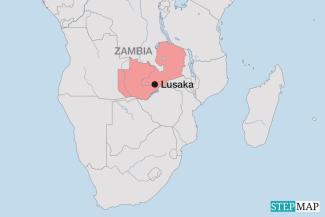Cholera outbreak
Women-led businesses suffer most

As health workers scramble to contain the crisis, financial experts warn that the disease outbreak is likely going to negatively affect the country’s already struggling economy. The Zambia Federation of Associations of Women in Business (ZFAWIB) now fears that the cholera outbreak, coming only around two years after the Covid-19 pandemic, will financially stress local businesses, especially those run by women.
Maureen Sumbwe, chief executive officer at ZFAWIB, says: “We foresee the failure of most female-run businesses. Many will not grow, or worse still shut down due to shocks of the Covid-19 and cholera outbreak coupled with the high cost of doing business.” She urges women in business to be resilient and “think outside the box” if they are to rebound, adding that “millionaires are usually made amidst crises”.
According to many entrepreneurs, the government must intervene to protect local businesses. Special attention needs to be directed towards cushioning female-run businesses that are most fragile. However, the country’s leadership is overwhelmed.
Munyumba Mutwale, a Lusaka based economist, speaks to the government’s dilemma. “Cholera is forcing the government to spend more resources in trying to deal with the public health crisis in an already stressed health sector. This epidemic is also slowing down the hospitality and recreation sectors which had started rebounding from the pandemic.”
Mutwale argues that the cholera outbreak would have been avoided had the political leadership prioritised fixing drainage systems and investing in sanitation programmes. In many parts of Zambia, access to toilets remains a challenge. As a result, waste disposal remains a source of disease.
In Lusaka’s central business district, where many women-operated business are, sanitation challenges are high. Many of the women operate local restaurants and eateries that feed city-dweller. Now, many former customers are afraid of eating anything from there due to the risk of contracting cholera. A check at Lusaka’s sprawling Matebeto market, renowned for its mouth-watering cuisine, found the eatery with scant customers. The place usually swarms with enthusiasts of traditional meals.
“When business is at its peak and on a good day, I usually make between three thousand and five thousand kwachas. But now, since the onset of cholera, I make less than one thousand because clients hesitate to come to order food,” moans Agness Chibwe, a restaurateur at the Thornpark market.
Commonly known as a disease of poverty affecting people with inadequate access to safe water and basic sanitation, cholera is spread by consuming contaminated water or food and causes severe dehydration from vomiting and diarrhoea. Left untreated, it can kill within hours.
Derrick Silimina is a freelance journalist based in Lusaka.
derricksilimina@gmail.com









